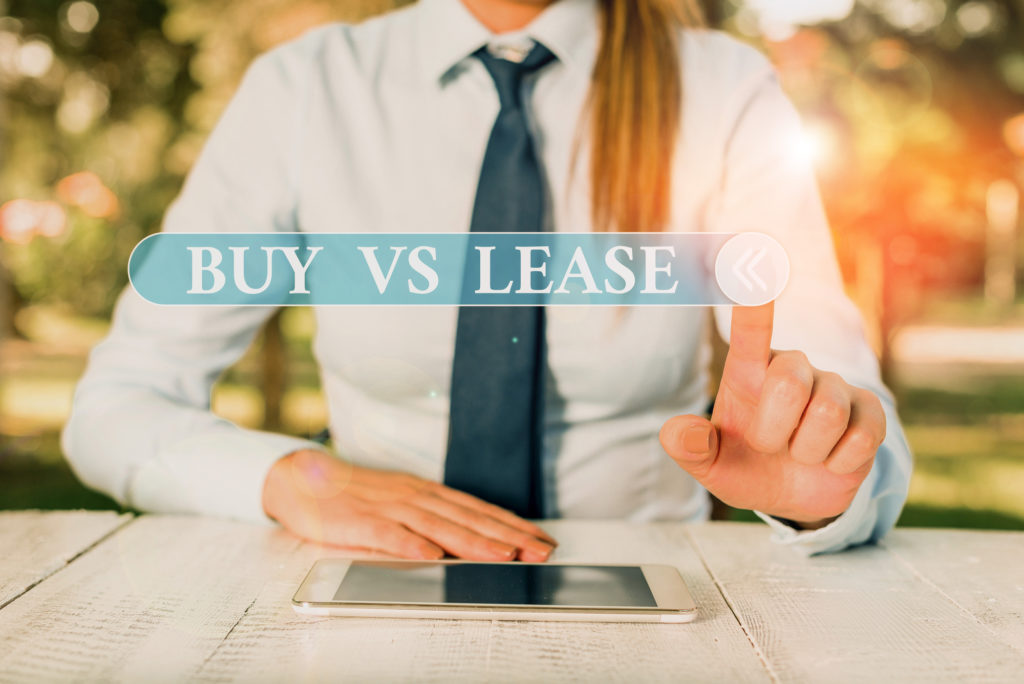 In the market for a new truck for your business? Need expensive equipment now? Should you buy it or lease it? There’s no right answer; it depends on your situation. There are financial and tax considerations for both choices.
In the market for a new truck for your business? Need expensive equipment now? Should you buy it or lease it? There’s no right answer; it depends on your situation. There are financial and tax considerations for both choices.
Financial implications to consider if you buy or lease
When you buy something, it becomes an asset that’s reflected on your balance sheet. If you lease something, you have no ownership interest; it’s not a business asset but merely property you use according to the terms of the lease agreement.
Typically, when you buy something expensive for your business, such as a vehicle or heavy or highly technical machinery, you finance the purchase. This may be arranged through your company’s line of credit, a business loan, or vendor financing. Leasing is a form of financing. However, because you’re only using the asset for the term of the lease, you aren’t financing the entire cost. This means that the cost to lease usually requires less cash outlay annually than the cost to buy…a better option for cash flow purposes.
When it comes to insurance, in most cases it makes no difference whether you own or lease the vehicle. The cost of coverage typically is based on the value of the vehicle and your safety record. But keep in mind that if the vehicle is owned by the company rather than you as the owner, the cost of coverage may be higher. And if you lease it, insurance may be included in the monthly lease payments.
Other financial concerns:
- Leasing a vehicle may not be financially practical if you expect to drive it more than what a lease would allow (typically 12,000 or 15,000 miles annually, each of which is factored into the lease payments). Miles in excess of the lease limit become pricey.
- Owning equipment may not make sense if you expect it to become obsolete beyond the term of the lease. Think VHS video recorders and film cameras. What’s likely to become obsolete in the near future? Medical devices, for example, may have a limited life as technology continually improves. The same is true for robotics. Why own something that will no longer serve you in the near future?
What are the tax results if you buy or lease?
When you buy something, you can recover your cost through various write-off options in the tax law:
- Regular depreciation, which spreads deductions over a recovery period for the item that’s fixed by law.
- Bonus depreciation, which is a 100% deduction in the year the item is placed in service, assuming it’s eligible property.
- Section 179 deduction (first-year expensing), which is a write-up capped at $1,080,000 in 2022. The deduction is phased out and eliminated if the business buys more than a set amount for the year.
- De minimis safe harbor, which for small businesses, is $2,500 per item or invoice.
For business cars, light trucks, and vans, there are special limitations on write-offs (2022 limits have not yet been announced).
In contrast, monthly lease or rental payments are fully deductible. However, for expensive business cars, light trucks, and vans, there’s an “inclusion amount” that reduces the deductible payments. The inclusion amounts for 2021 are modest; the amounts for 2022 haven’t been announced.
Final thought
The decision on whether to buy or lease what your company needs should be made on a case-by-case basis. Work with your CPA or other financial adviser to run the numbers and see what makes the most sense for your situation.


